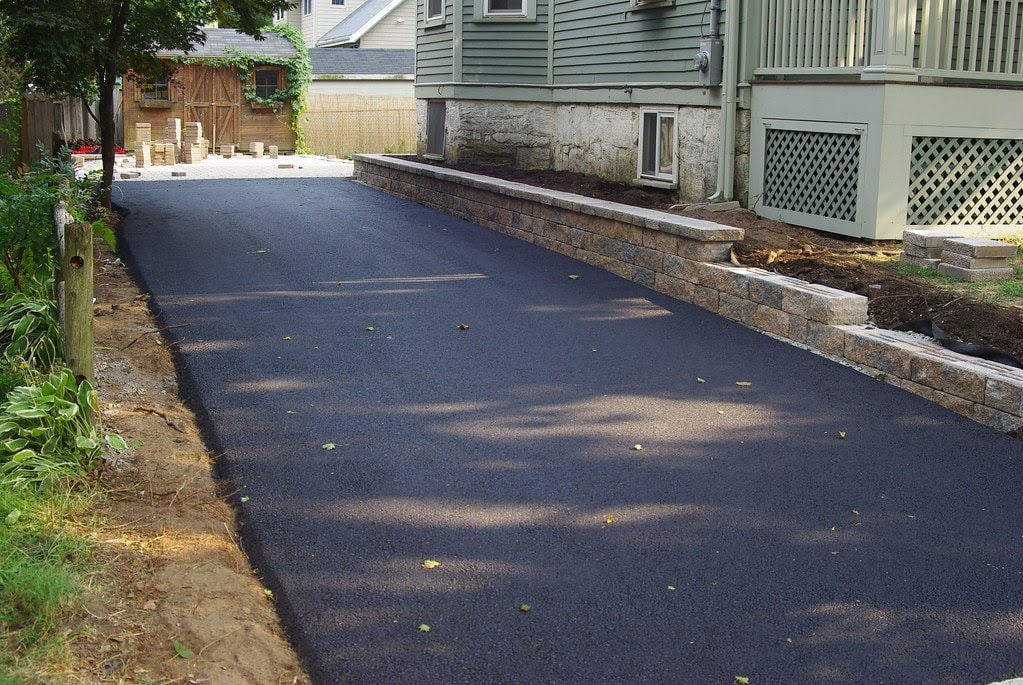
When it comes to paving areas like parking lots and driveways, two materials usually come to mind, concrete and asphalt. Asphalt, otherwise known as blacktop, is similar to concrete in terms of performance and cost but does differ a bit.
Whether you’re looking to pave a parking lot or you’re wondering if you should install a blacktop or concrete driveway, there are plenty of factors to consider. So, let’s do a complete rundown of how these two paving materials stack up against each other and explore a possible alternative to both as well.
Cost Comparison – Blacktop vs Concrete Driveway
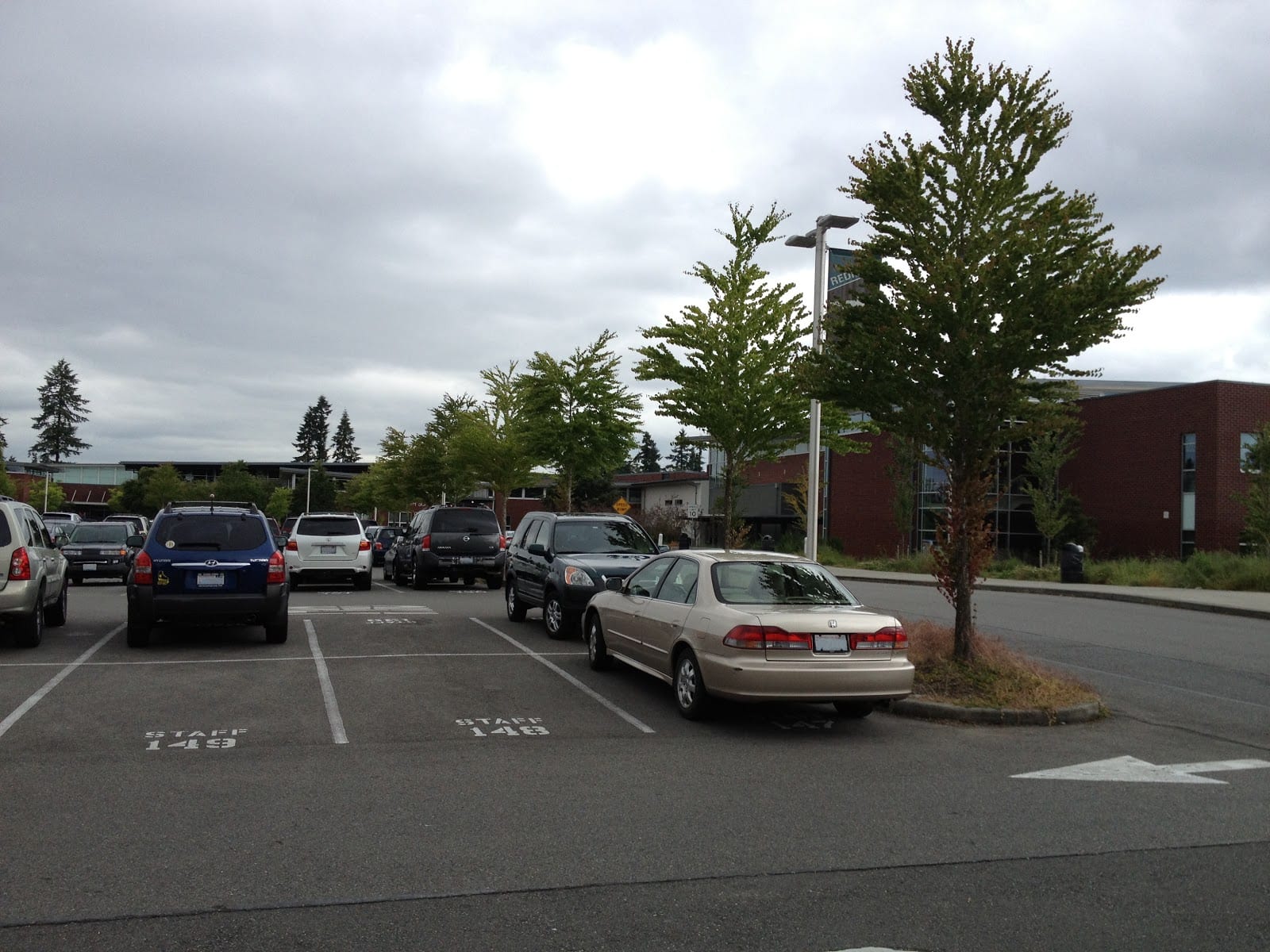
One of the biggest influential factors on your decision will probably be the cost. There are both short-term and long-term costs for asphalt and concrete. Asphalt is cheaper than concrete to install, at about $3 or $4 per square foot. Concrete typically costs at least $6 per square foot to install.
For a parking lot, both materials will require additional drainage systems for stormwater management, such as detention ponds and drainage grates. There are porous versions of both concrete and asphalt available, but they usually still require drainage when used in large areas like parking lots and are more than double the cost.
Climate Concerns – Blacktop vs Concrete Driveway
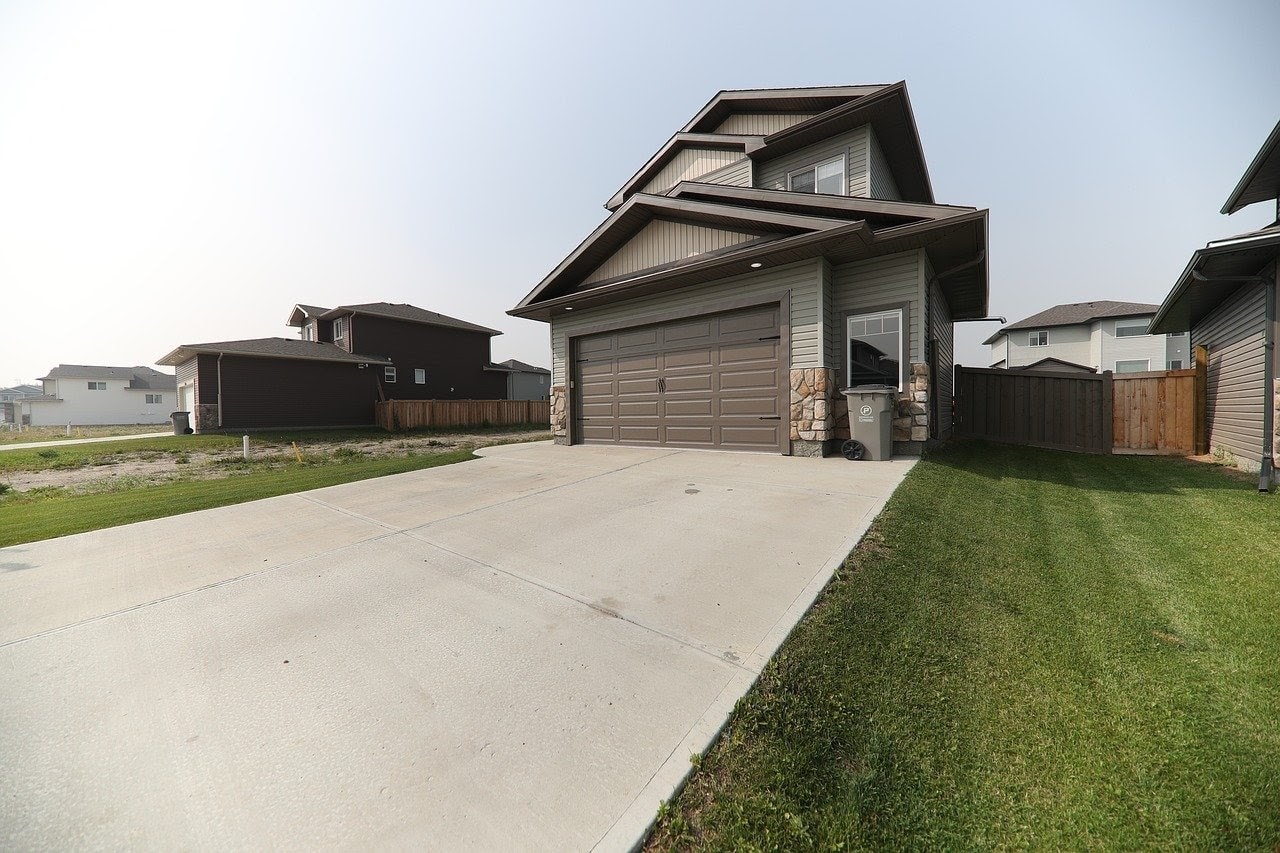
The amount of maintenance you’ll have to perform over the life of your driveway or parking lot will depend heavily on the local climate. Freeze-thaw cycles are detrimental to both concrete and asphalt.
The smallest amounts of water seeping into the surface of either material will eventually lead to cracks and other more serious damage if not dealt with. You’ll have to resurface your asphalt and reseal your concrete regularly if you want to avoid water damage.
Asphalt also absorbs heat and gets sticky in hot climates, while concrete easily cracks and degenerates under salt in cold climates. For this reason, climate should be a big consideration when considering an asphalt or concrete driveway.
Installation and Maintenance
Asphalt is much quicker to install than concrete, for a residential driveway it can be completed in about 2 days. For a parking lot, it can be done in under a week in most cases. Concrete can take up 6 days for a driveway, and much longer for a parking lot.
As far as maintenance is concerned, a well-maintained asphalt surface can last up to 20 years as long as it’s resurfaced every 3 years. Concrete can last anywhere from 30 to 60 years with proper maintenance. This includes resealing every 1-3 years.
Environmental Impact – Blacktop vs Concrete Driveway
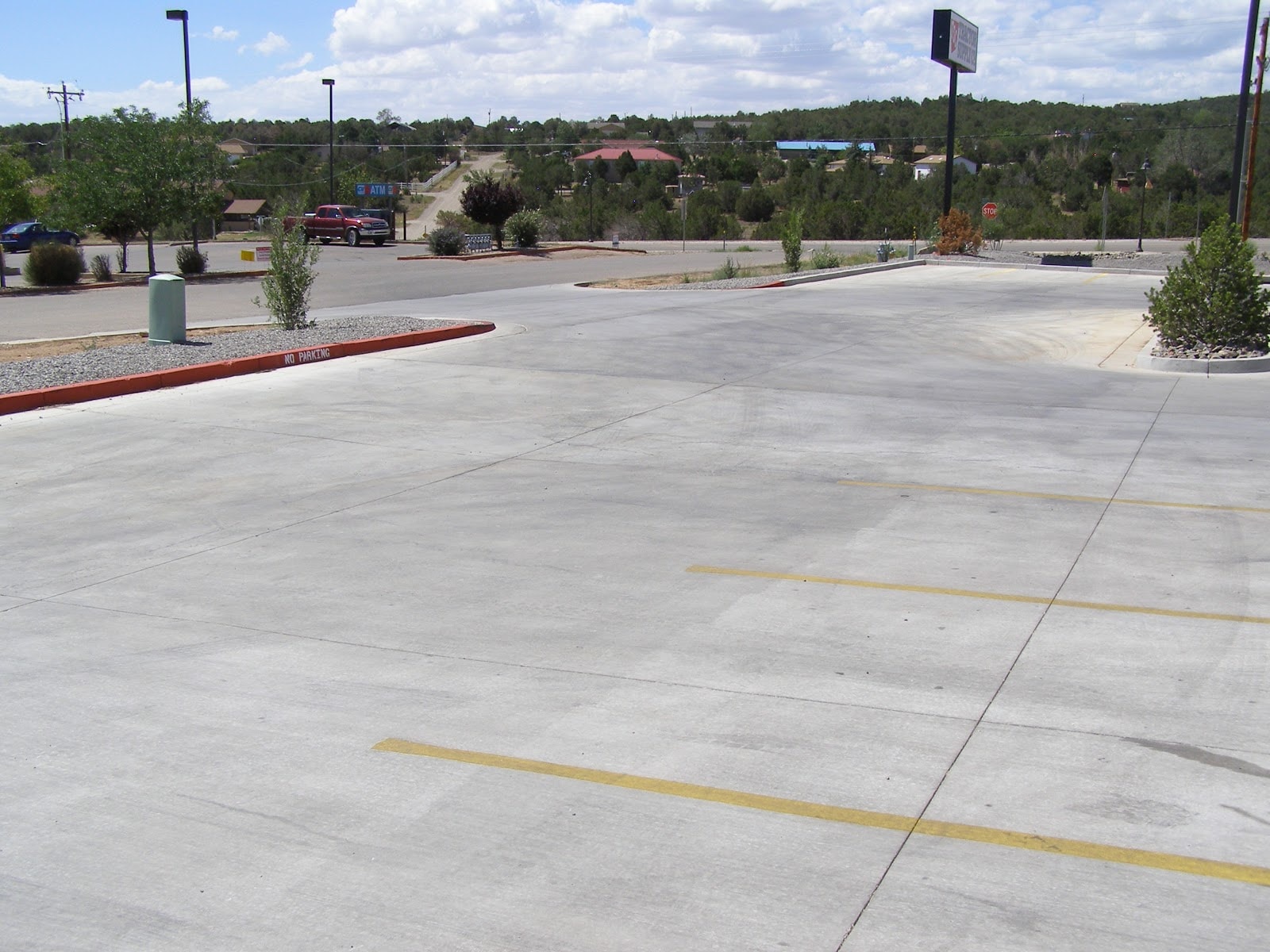
Concrete and asphalt both release carbon into the air when produced. Asphalt is a bit more eco-friendly because it can be recycled, however concrete cannot usually be recycled. Asphalt does have an overall lower carbon footprint than concrete, though not a negligible one by any means.
Is There a Better Paving Option than Concrete or Asphalt?
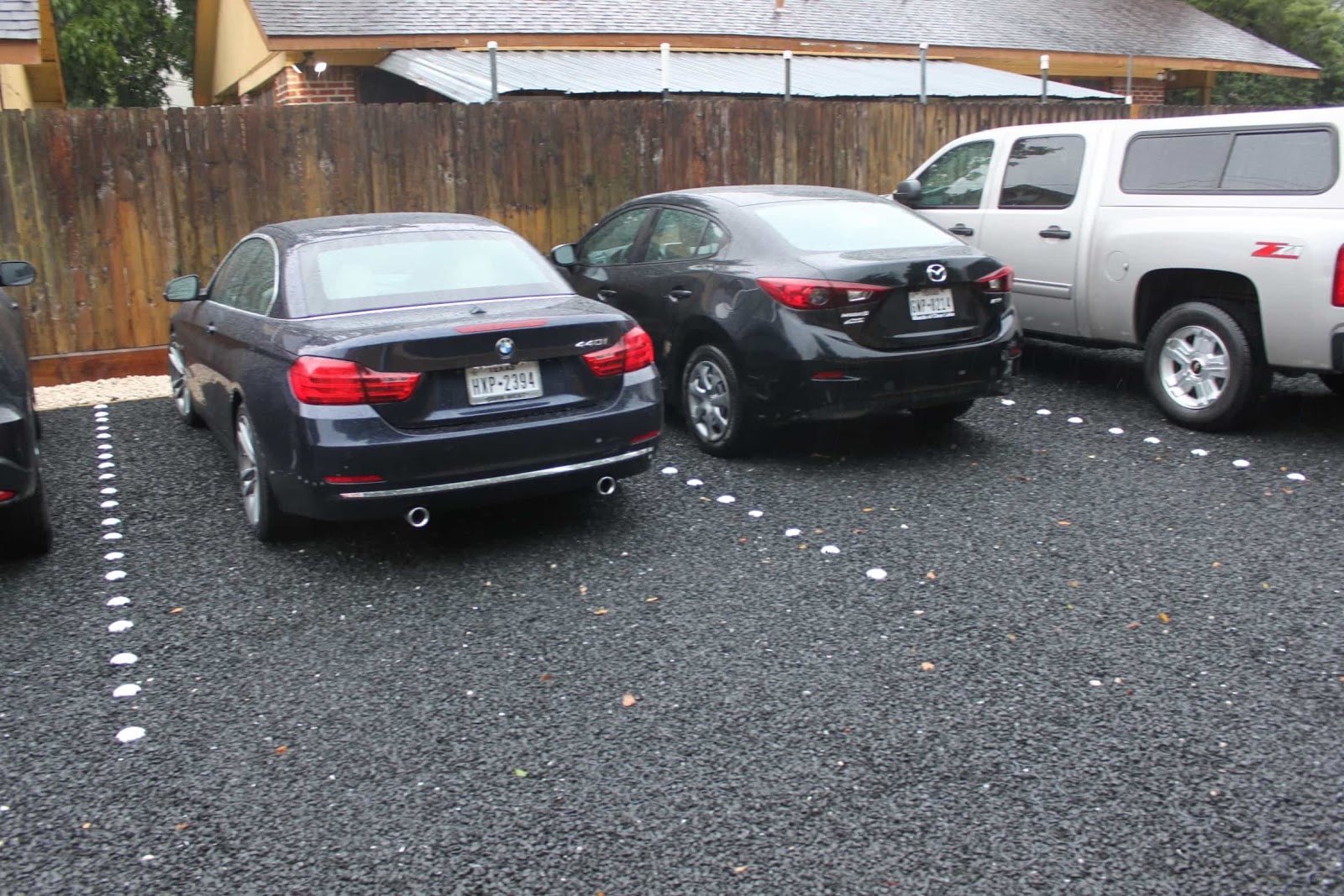
Yes, there is a better paving option. Recent innovations in paving technology have led to the development of commercial-grade permeable plastic pavers, such as the PRO PLUS product from TRUEGRID. They outperform concrete and asphalt in just about every category.
When it comes to durability, TRUEGRID pavers are far more durable and long-lasting than concrete or asphalt. In terms of raw strength, they can handle the weight of a monster truck jumping off a ramp and landing on them without breaking. And, that’s before they’ve been filled with gravel.
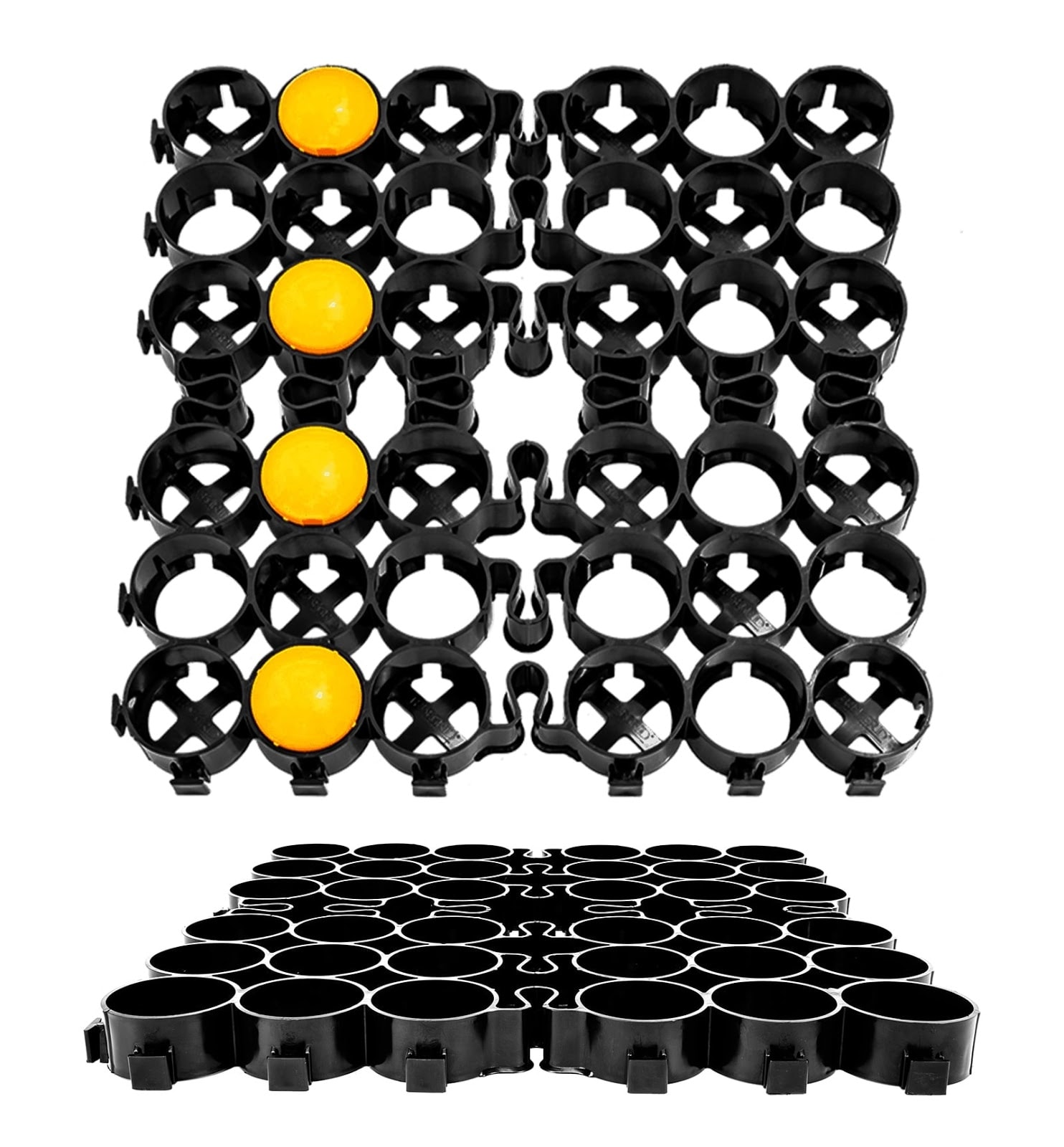
TRUEGRID permeable pavers are used to stabilize aggregates like gravel, turning them into a solid, level, unmoving paved surfaces. The installation process is as simple as excavating the desired paved area to a depth of about 12 inches. A filter fabric is laid at the bottom of the excavated area and a clean, angular aggregate is poured in and compacted. The base rock provides drainage and detention capacity as well as contributing to the strength of the system.
Next, the TRUEGRID pavers are snapped into place (as easily as Lego blocks) right over the top of the fill material. Then, more fill is poured into the top and compacted into the pavers with a heavy roller or vehicle. This completes the process, leaving you with a ready-to-use paved surface.
What Makes TRUEGRID Superior to Asphalt and Concrete?
TRUEGRID pavers have almost none of the downsides of concrete or asphalt. They require almost no maintenance, yet can last up to 60 years. They are unaffected by hot weather, cold weather, and everything in between.
They’re also 100% permeable, allowing stormwater to drain directly through them and eliminating the need for additional drainage. The installation process is much faster than asphalt or concrete, often able to be completed in a single day.
In terms of eco-friendliness, TRUEGRID plastic pavement stands head and shoulders above other pavement materials. It’s made from 100% post-consumer recycled plastic and has one of the lowest carbon footprints of any type of pavement. It also lessens the burden on local waterways, due to its permeability and elimination of stormwater runoff.
If you want a new driveway or parking lot that’s clean-cut, stylish, durable, low-maintenance, and eco-friendly, contact TRUEGRID today for a quote.



